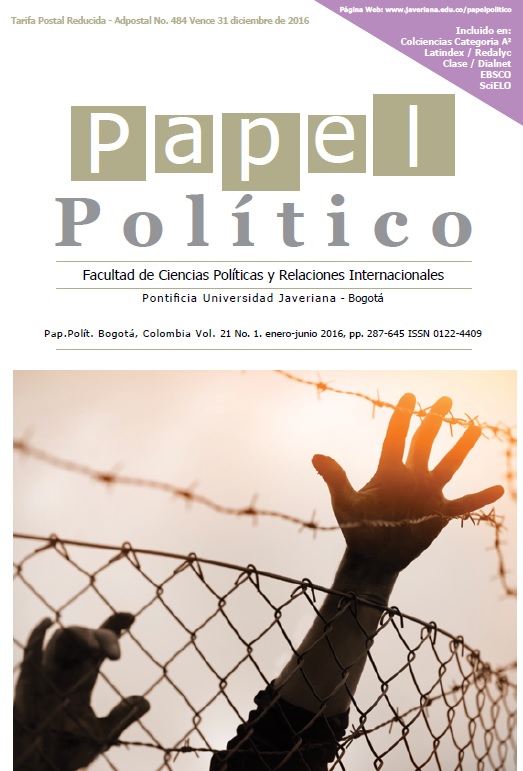Abstract
El presente artículo busca presentar la alternativa teórica de Hedley Bull y la Escuela Inglesa de las Relaciones Internacionales, ante los grandes paradigmas del estudio de las relaciones internacionales, alternativa que tiene la aceptación de varios académicos tanto dentro del Reino Unido como en otros países. Actualmente, existen en Latinoamérica discursos académicos y políticos muy fuertes basados en las dos grandes escuelas de las Relaciones Internacionales, a saber: realismo y liberalismo. El presente artículo analiza ambas escuelas, el debate que actualmente tiene lugar entre ellas, su materialización en los discursos más utilizados dentro del continente y da a conocer la propuesta planteada por Hedley Bull y la Escuela Inglesa de las Relaciones Internacionales como una opción adicional para analizar y entender la realidad del continente.
This journal is registered under a Creative Commons Attribution 4.0 International Public License. Thus, this work may be reproduced, distributed, and publicly shared in digital format, as long as the names of the authors and Pontificia Universidad Javeriana are acknowledged. Others are allowed to quote, adapt, transform, auto-archive, republish, and create based on this material, for any purpose (even commercial ones), provided the authorship is duly acknowledged, a link to the original work is provided, and it is specified if changes have been made. Pontificia Universidad Javeriana does not hold the rights of published works and the authors are solely responsible for the contents of their works; they keep the moral, intellectual, privacy, and publicity rights.
Approving the intervention of the work (review, copy-editing, translation, layout) and the following outreach, are granted through an use license and not through an assignment of rights. This means the journal and Pontificia Universidad Javeriana cannot be held responsible for any ethical malpractice by the authors. As a consequence of the protection granted by the use license, the journal is not required to publish recantations or modify information already published, unless the errata stems from the editorial management process. Publishing contents in this journal does not generate royalties for contributors.


